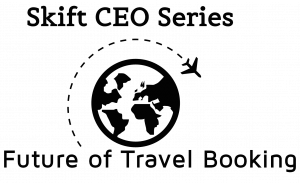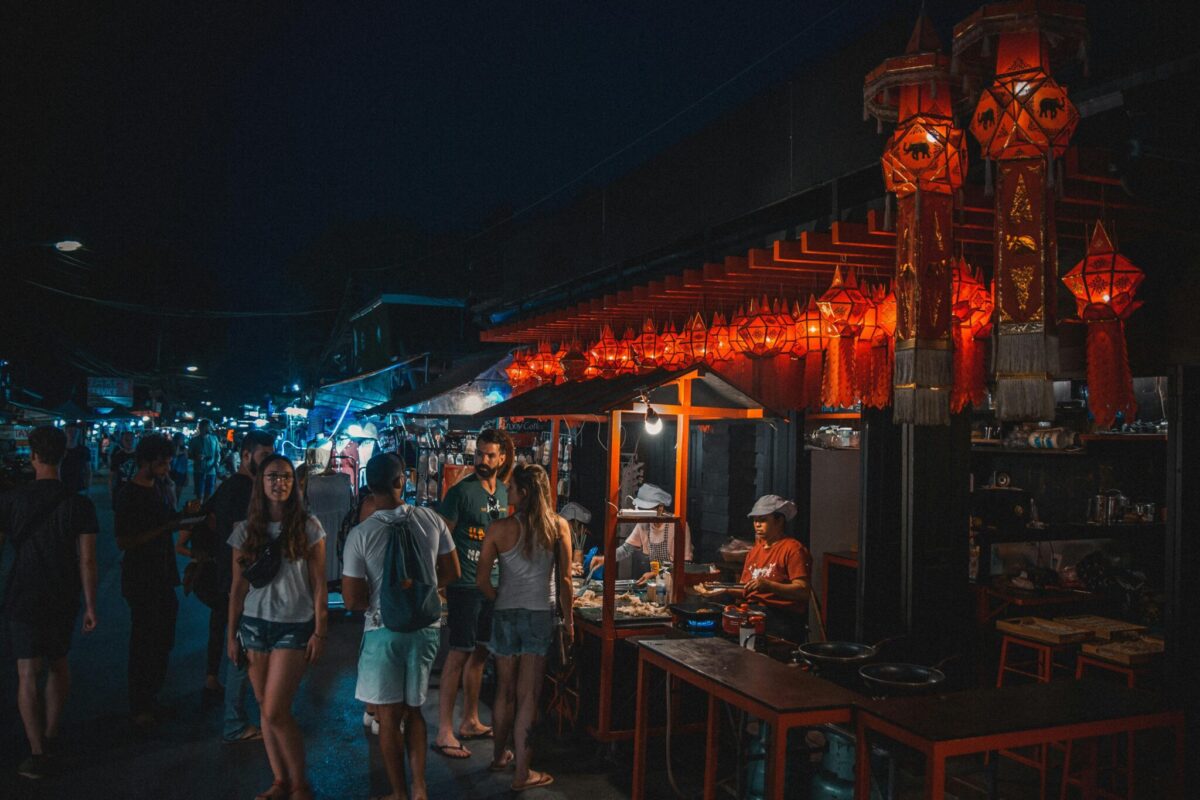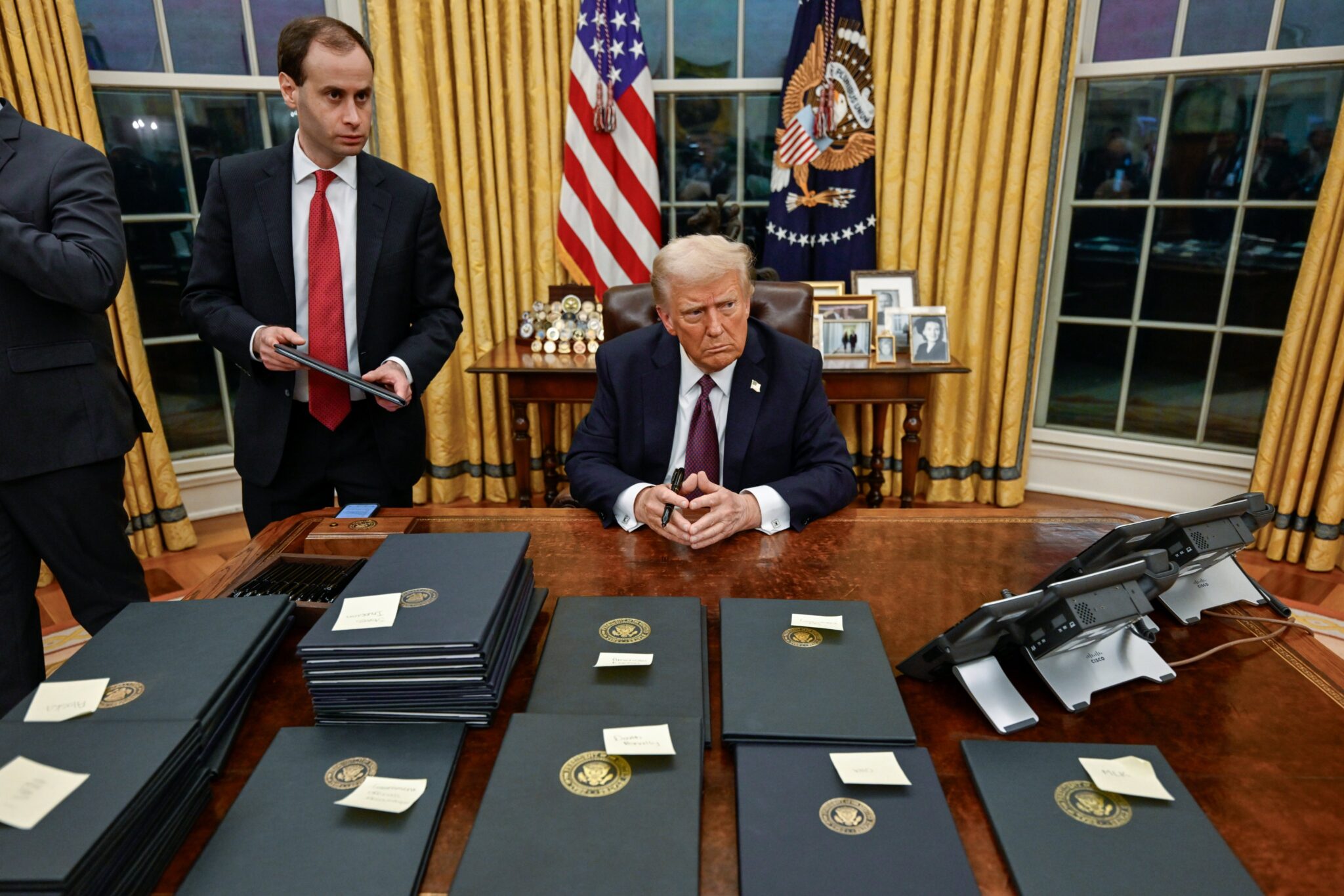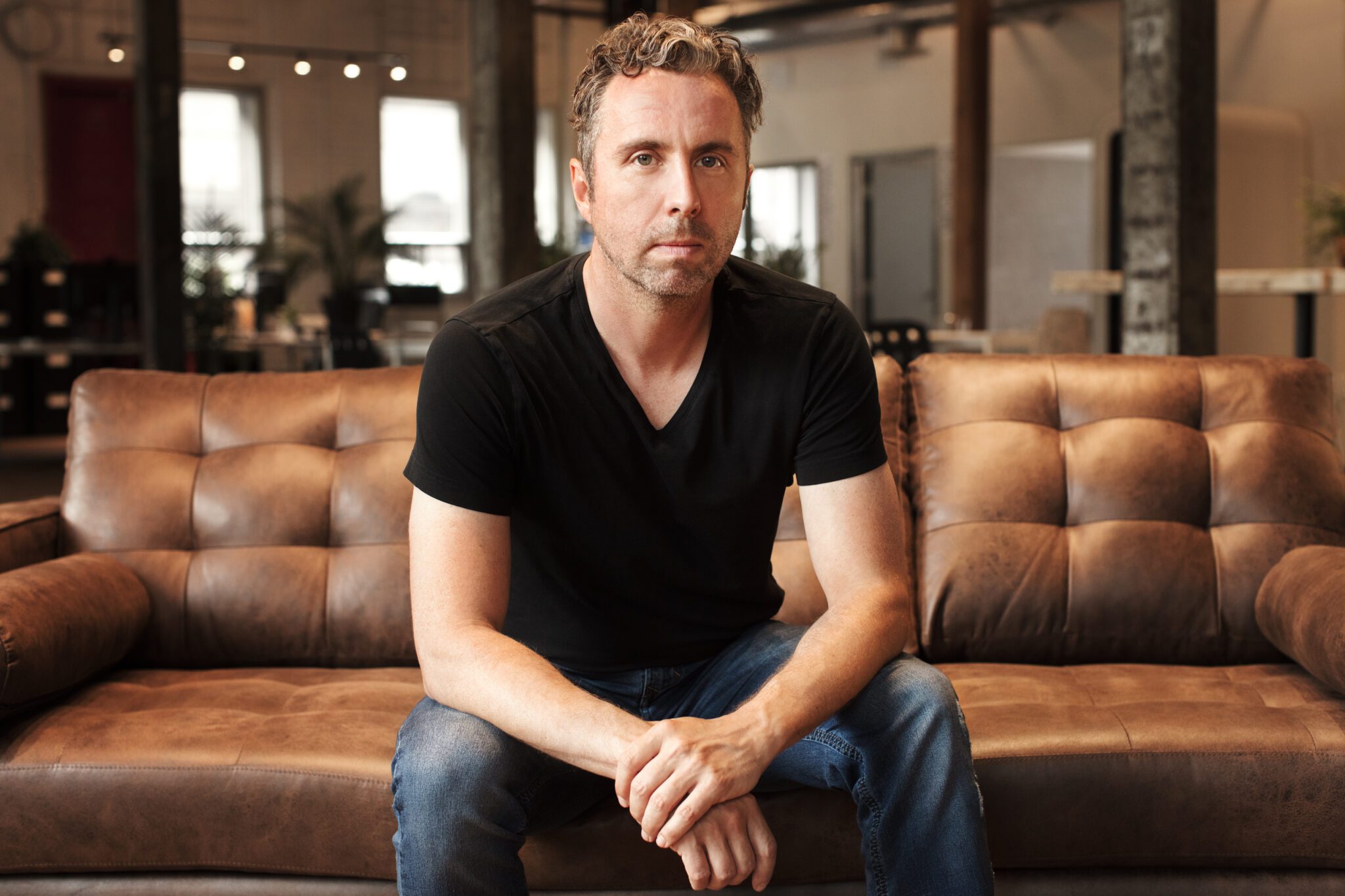Interview: Expedia's CEO on the Transformation of Travel Booking
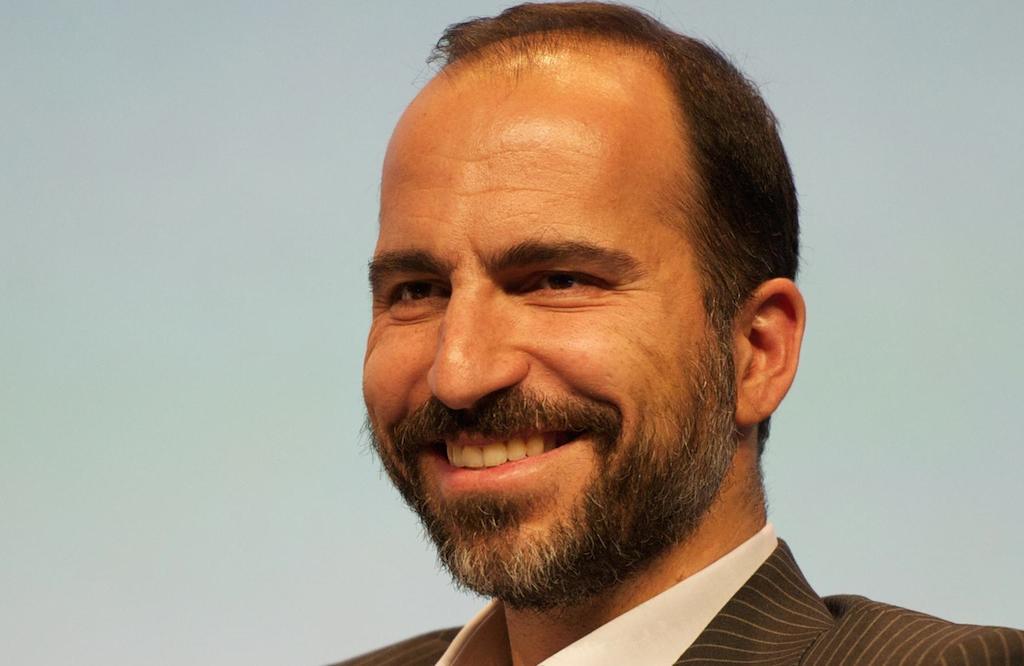
Skift Take
Editor’s Note: Skift is publishing a series of interviews with online travel CEOs talking about the Future of Travel Booking, and the evolving habits and device preferences of travel consumers. Check out all the interviews as they come out here.
Want to get a glimpse of the future of travel booking? Then talk to Expedia Inc. CEO Dara Khosrowshahi, as Skift did, about the massive bet the company is making on push notifications across all devices, products and brands as the world of "pull" and search, while still vital and strong, may see its role diminished in travel marketing.
Under this scenario, Expedia in the background will undertake the ever-more complex task of shopping for travelers while they sit back, and inform them when their air, hotel or car preferences are ready.
Khosrowshahi expounded on what he views as the most important trends in travel booking, spoke about the need to be a "street fighter" in China, opined that the Orbitz loyalty program isn't really a loyalty program, and commented about the very serious stakes in TV advertising for travel brands and where the benefits lie.
Following is an edited version of Skift's interview with Khosrowshahi on the future of travel booking and related topics:
Skift: Expedia, along with Hipmunk, seems to be leading the way in features that accommodate multi-device usage among travel lookers and bookers. You have your Scratchpad product that enables users to start searches on a laptop, pick the search right up on a smartphone, and perhaps finish it up on a tablet. What’s next for Expedia on multi-device usage and where do you think all this is headed?
Dara Khosrowshahi: There are a couple of trends we are observing that have caused us to invest in this area. One is in general the process we are seeing for for booking is getting considerably more complex. We see our users now shop across more sites than ever before. A user who's doing a flight search will be doing over 40 flight searches before booking a flight. And we are seeing users shop across multiple devices they book. Where we see today around 40% of our users using multiple devices to book.
Second is that in general we see that data in the travel industry is exploding. Data in general on the Internet is exploding. As an example, in 2005 the size of the entire Google index was 200 terabytes. Today Expedia processes over three times that amount in a single day. We process over 600 terabytes per day. People are shopping more because there is so much data available to them from so many more sources, not only us, but there are so many sites out there. And, their ability to get to that data is easier than it ever has been.
The third trend that we are observing -- and this is a really important trend going forward -- is that the way that users are engaging with the Internet is shifting from pull to push. The pull world is a person going to Google, querying and, for example, Google now processes about 3.5 billion searches per day, which is an enormous amount. But, when you look at the push notifications that you get from mobile devices etc., we think the volume of push notifications is five times the amount of these Google queries.
So you are really moving from a single device pull world to a multi-device push world. And, that for us is where we see ScratchPad going. We know that users search a lot so that it allows you to store all of your searches within the Expedia framework. We know that they are searching across different devices so whatever device you are searching from if you are logged in, with your cookie, we are going to track those searches.
So if you are on your phone and you are interrupted, and you go to your PC you can see those searches. And then what we are doing, as far as pull going to push is, once a user pulls from us -- say they are interested in a New York shop, for example -- we are going then going to do the shopping for you. For example, you can ask us to send you an email everyday, showing you the price changes of flights and hotels. We are going to extend this to every single product that's available on Expedia in a push manner so you don't have to constantly come back and search and shop and shop. We can do that for you.
So ScratchPad is really a framework that we've built. We are going to take it across devices as far as push notifications. You can imagine appending searches. If you've done a bunch of flight searches, you might be able to append them, send them to your wife, share them socially. There is a lot more we can do and it is really just the beginning of this really important multi-device push infrastructure that we are building out.
Skift: On the mobile front, a lot of companies talk about how many downloads they have, and you do as well, but you also have a goal of 20% of transactions coming through mobile devices by the end of 2014. What is it going to mean for the future of travel booking if you meet that goal?
Khosrowshahi: I think we are well on our way to meeting that goal: A number of our brands are well above that goal. Just like you couldn't be in travel three years ago and not be online. You can't be in travel now and not be multi-device and be mobile. Mobile is a great opportunity for us because it opens up a new shopper class, last-minute shopper, that we didn't offer a great service for. Now our service is absolutely terrific for that shopper.
We through our technology are offering same-day deals, mobile-only deals, offer a unique way for our partners to reach those shoppers. So it is a win-win for us and our partners. And, we are seeing mobile, especially in developing markets like China, accelerate the rate of consumers coming online. They are coming mobile before they buy a PC. And as they are coming mobile they are searching for all kinds of things, including travel. So it is accelerating the rate of online travel adoption, especially in developing countries, especially in Asia-Pacific.
We are making a couple of bets there. We are investing heavily in our app product and in driving downloads on a global basis. We have more than 150 million downloads now globally. And, we are also making a very big bet on responsive Web design, which is making sure that whatever services that we build across our brand family that those are available in a responsive way across any device that you are on. Whether it is a tablet or a mobile phone. Eventually it will be watches etc.
It is a different way of design. It is more complex. There is a challenge in moving from the old way of designing to responsive design, but we are very consistently moving over more of our sites onto responsive, which makes for a terrific mobile experience across whatever device you may be using.
Skift: You mentioned China. I was going to ask you about China in terms of the next big thing in terms of burgeoning markets. We have Ctrip and the Priceline Group getting cozier. Qunar is talking tough. How is it going with your eLong subsidiary in terms of any lessons learned about mobile and the future of travel bookings in general?
Khosrowshahi: China is a unique market and there are very few Western companies that have been able to be successful in China. There's a really good reason for that because China is different. And we are very lucky to have a terrific team with the eLong team, and a terrific CEO with Guangfu Cui. You know Guangfu tells me that westerners don't do well in China because they are not street fighters and the Chinese are street fighters.
eLong continues to grow at terrific rates. It is one of the big scale players in China, one of the top three players in a very competitive marketplace. We are 100% behind that company, we are 100% behind that team, and we are investing aggressively both in terms of building the eLong brand in China, but especially mobile, as well.
Mobile is exploding in China. It is much more app-heavy than mobile-Web heavy in China, and we are making all the right investments in order to grow that business aggressively.
One of the new activities we are engaging in this year is to really tie up our inventory so that Expedia travelers can now book on eLong hotels in China. eLong travelers are increasingly booking on Expedia Affiliate Network hotels internationally, and that cross-border traffic is increasing at exponential rates, and that is something that we love to see.
Skift: There sure does seem to be a lot of street-fighting going on over there in terms of all the couponing and discounting.
Khosrowshahi: Oh yeah, absolutely.
Skift: In 2012, Expedia introduced its Expedia Traveler Preference program, combining pre-pay hotels with Expedia and pay-at-the hotel options for hotel bookers. It seems like a no-brainer to give your customers more choice, but what sorts of booking patterns are you seeing with these options and how does it differ from region to region?
Khosrowshahi: We've got almost 60,000 hotels now signed up for Expedia Traveler Preference and we expect to see an increase in production for ETP hotels. And there''s been a significant increase for the partners using ETP. We are very happy with the trends there.
There are some interesting patterns that we are seeing. First, we see a roughly 50-50 split between Expedia collect and hotel collect bookings on a global basis. But, in general we do see hotel collect being a higher percentage of domestic booking. If you are booking domestically with the same currency hotel collect tends to have a higher percentage. For international bookings, we are seeing lots of customers who don't want to deal with foreign exchange fees. They don't want to take a risk on foreign exchange and want to lock in their rate so we see a higher percentage of Expedia collect bookings for foreign bookings.
We are also seeing on shorter booking windows more Expedia collect. So if you know that you are going to that hotel we see consumers who just want to transact. They want to get it done versus paying later at the hotel. For longer stays, or for stays that have longer windows, we see more hotel collect bookings.
What's interesting is that people have different needs for the different types of travels, and for different types of travel behaviors. What ETP does for us is offer the flexibility for us to better serve consumers. And to the extent that we are much more flexible in serving those consumers are hotel partners win.
Skift: The year 2014 seems to be the year of the online travel agency loyalty program battles. What does the Expedia loyalty program have that Orbucks doesn't have, and what does it mean for travel booking, if anything?
Khosrowshahi: I think calling it a battle might be over-stating it a little bit. I call it more border skirmish perhaps. We have been in the travel loyalty game for a long time. In particular, I think the Hotels.com Welcome Rewards program is the grand-daddy of the OTA programs. It has been around for over five years, we've got over 10 million customers. It is super simple, 10 for 1. We see very attractive behavior from our Welcome Rewards members as far as repeat rates, and as far as how they repeat. They come direct to the site. The are totally sold on Hotels.com as a service provider for them.
When we look at the Orbitz program, I wouldn't call it as much a loyalty program because a loyalty program rewards you for being loyal. I think we see the Orbitz program as being more of a cross-sell program. If you buy an air ticket then you have some Orbucks to spend immediately. So it doesn't necessarily reward loyalty; it rewards cross-sell.
What we are seeing at Expedia is that we're able to drive cross-sell through product innovation quite successfully. The Expedia Rewards program is much more about loyalty. We don't think there is one formula for loyalty, but we are quite satisfied with our various programs and we continue to invest in them pretty aggressively.
Skift: Are TV advertising trends border skirmishes also or are those wars? What are you seeing in terms of Expedia, Hotels.com, Trivago, you name it, advertising on TV?
Khosrowshahi: I think those have graduated definitely beyond border skirmishes based on the dollars spent. TV is a strong media source to the extent that you have a strong message and a strong service. The thing about TV is that it lifts your business across all your channels. For example, at Hotels.com we see the Captain Obvious campaign has been a real success, is improving Hotels.com direct traffic, but also improves traffic, click-through rates and conversions arcross other channels, as well.
We are committed to the TV medium. We will continue to increase our investment there, and it is no surprise that we are seeing some of the other players investing in TV, as well.

